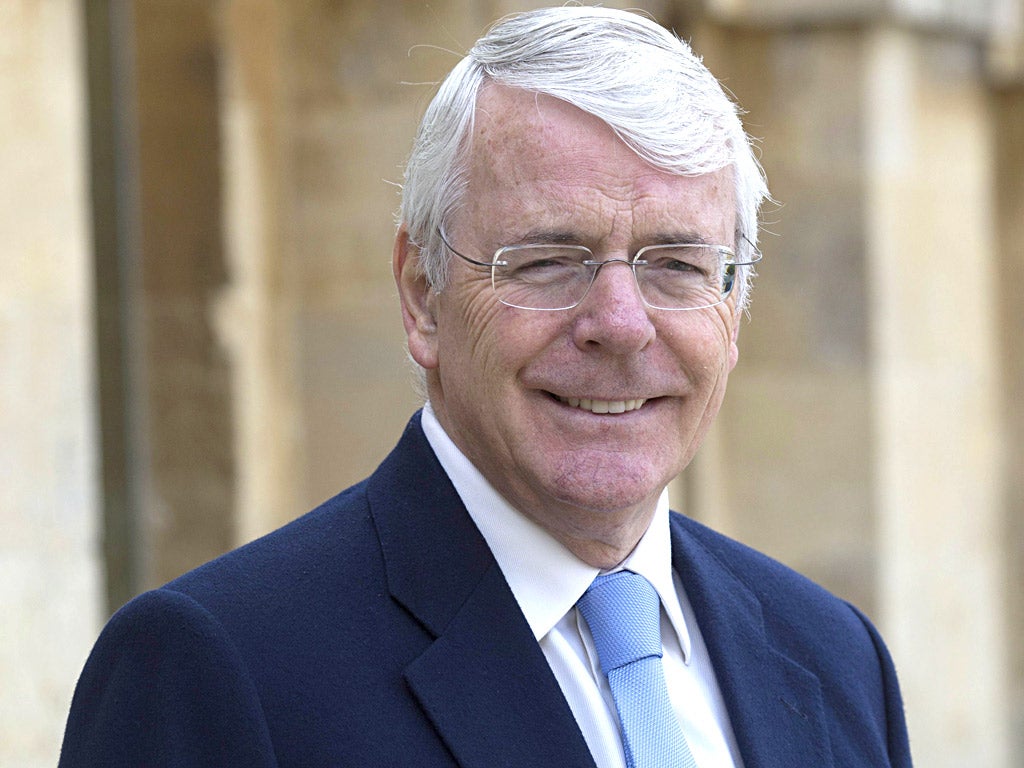Sir John Major's call for Big Six profit tax has handed Ed Miliband a stick to beat the Tories with
The former Prime Minister must feel strongly to go against the party line


Lunch in the House of Commons press gallery yesterday was one of those moments that had journalists delighted and puzzled at the same time. Sir John Major, now 16 years from holding the highest office, came to speak and to answer questions. His speech, I am told - I wasn't there - was one of the best that many of my colleagues had heard. Considering that they have only recently hosted Tony Blair - I was there then - I thought they were victims of short-term memory syndrome, which is common among the journalistic fraternity.
Sir John's speech was so good because it had a strong message: that the Conservative Party ought to be on the side of the hard-working poor. And because it had a lot of news stories in it. Although the biggest news story came in answer to questions. The BBC's Carolyn Quinn asked about the cost of gas and electricity bills and he said the Government should impose a windfall tax to pay for help to the poorest to get through the winter.
This wasn't an ad lib, though. Sir John is a little more experienced than that. He seemed to have thought through the policy, which was why his performance was so puzzling. What on earth was a former prime minister doing, making the current prime minister's life so difficult and ensuring that Ed Miliband has all the ammunition he needs for Prime Minister's Questions today?
Some of my colleagues reach for a conspiracy theory instinctively, and assume that Sir John is part of a No 10 operation to soften up public opinion for a dramatic new policy to head off Miliband's energy price freeze. I don't think so. I agree with Nick Robinson, the BBC's political editor, who interprets Downing Street's response, welcoming Sir John's contribution as "interesting", as meaning, "surprising, unhelpful".
So I can only conclude that Sir John feels strongly about the subject - so strongly that he is happy to say the precise opposite of what he said 16 years ago, when Tony Blair, the free-market Thatcherite traitor to the Labour tradition, proposed a windfall tax on the privatised utilities. So strongly that he is happy to cause wailing, gnashing of teeth and rending of garments in No 10 and the Treasury next door. I am told that George Osborne's officials were on the phones to each other and the boss even while Sir John was still on his feet.
Let us see how PMQs goes. But there is one paradox about Sir John's story-rich contribution to what passes for excitement in political reporting classes. If he had not made the suggestion of a windfall tax, this morning's headlines might have been even worse for David Cameron. The really wounding bits of the speech were those that suggested that the Prime Minister is too posh to understand the hardship of those living in "lace-curtain poverty". Sir John said he understood their problems "because I grew up with them: they were my neighbours, the silent have-notes". The contrast with Cameron's background was striking.
If Sir John had not gone for the energy companies, the Daily Mail headline this morning would not have been: "Hit Power Firms With a Windfall Tax, Major Urges PM." It might have been: "Toff PM Doesn't Understand Hard-Working Poor, Says Major."

Join our commenting forum
Join thought-provoking conversations, follow other Independent readers and see their replies